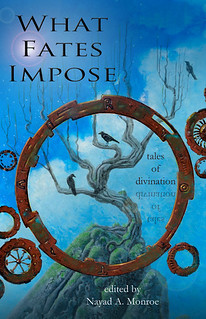Two Photos That Sum Up Yesterday

I used my table saw yesterday for an actual task, which was a heady experience. It’s a small task – chopping up a pegboard so it’ll fit on the wall – but it’s the first time I’ve used my tools and my hands to alter my fucking environment. As someone who’s largely hired people to do stuff for him, saying, “I want a new pegboard on that wall” and then going all “SO MOTE IT BE” is a little crazy.
Incidentally, I’ve settled upon my first project for the workshop: an arcade cabinet. This oughtta be interesting.

And this would be my lovely wife Gini, picking up our food from the food co-op we subscribed to. A bunch of fresh veggies and fruits, all for us! We’re trying, man. I hope we can keep up with all this nature. (And now, I’m off to eat some strawberries.)
Let's Do Equations Involving Assholes
When it came to negotiating cheap airline prices, there was no one better than Russell. He had a way of browbeating innocent clerks until, exhausted, they handed him over to their manager – and then Russell would hammer the manager, mentioning that we were a big organization, we booked a lot of flights, did you want to lose our fucking business? And while Russell made service managers weep – literally weep – he got us flights at rates that looked more like Greyhound Bus rates.
As a volunteer organization with a slim budget, this skill was invaluable. But Russell came with a cost:
Nobody wanted to work with him.
A prima donna, Russell knew he was good at his job – and he’d turn that scathing anger upon his fellow volunteers as quickly as he would the clerks. Anyone who faltered, who missed a deadline, who blew an opportunity for savings – Russell would chew into them gleefully, call them out publicly, haul out their dumbass behavior and spread it as far as he could. They’d fling up their hands and say, “I don’t want to deal with this asshole.”
And when you confronted Russell on his asshole behavior, he’d chuckle and admit that he was an asshole. But a productive one. He did the work of five of these other slackers – a fact he kept hammering home repeatedly. “If you put five guys together,” he said, “They couldn’t do half of my job! So fuck them if they want to leave!”
Unfortunately for Russ, that constant refrain actually encouraged us to formulate an equation:
One active Russell == How many lost volunteers?
Russell was, arguably better than any five generic volunteers – a herculean feat. But his asshole behavior drove people away at an astounding rate. If Russell did the work of seven volunteers, and alienated only five members, well, then we had a good deal on our hands.
But how many people was he alienating, really? Because the equation changed if Russell’s presence caused ten people to fling up their hands and walk away.
That was Stage One of my incipient Asshole Theory: Assholes will consume a certain number of other people. Whether it’s Russell booking planes for guests or a dazzling troll in some forum who raises good points, an asshole will cause some percentage of your crowd to go “Fuck this.” And the first stage in Asshole Theory is that you must place a value upon the asshole, and then figure out how many people s/he is worth losing.
This is an easy if it’s a useless asshole. Gets a little more talented if it’s a useful asshole like Russell, or a charming asshole who has slavish devotees. Then you have to start figuring exactly what sort of fallout you’re ready to endure should the asshole leave.
Yet when we started asking around about Russell, we found stage two of Asshole Theory. Turns out that the number of people who actively complained about Russell? Wasn’t the real total. When we started inviting comment upon Russell, quietly tugging people who weren’t volunteering aside to ask, “So why aren’t you helping out?” The answer was, frequently, Russell. But who wants to cross an asshole, particularly one who’s known for going off in public spaces? Who wants to criticize a guy who wields grudges like clubs?
That’s Stage Two of Asshole Theory: The number of people consumed is greater than the number of active complainers. People feel no obligation to tell you how dysfunctional your organization is; they’ll just walk, quietly, and figure you know the problem exists. (Which – and let’s be honest – you kinda do.) So that cost usually has some portion hidden, though it gets tricky to figure out if some of the complainers are also assholes.
When we investigated and estimated, turned out that yes, Russell really did do the work of seven people. (Which is pretty damn amazing.) But he alienated fifteen people… fifteen people that we could find. There were likely more. And so, once we did the hard work of doing the math and then extracting Russell from the group, we had a flood of new people who were willing to help. We did pay more for our airline flights, it’s true, but we also had more people to handle the tasks that Russell couldn’t quite keep up with.
That’s my Asshole Theory: you need to keep track of your assholes, and determine what their cost in members is – whether those members are volunteers, employees, staffers, or dues-payers, the asshole is definitely costing you some amount of them. Your job: to figure out what that cost is, overestimating if you don’t have the time to actually dig deep and find out, and then determine whether it’s better to keep the asshole on-board, or to jettison him.
Why do I bring this up today? No reason. No reason at all.
XBoned
I’m sort of astonished at how poorly Microsoft is handling all of this PR over its new console. None of the choices they’ve made have been indefensible – they just need to make an argument for them. Which they haven’t.
Take the “always-connected” issue. Sure, it’s an inconvenience. But if Microsoft had been aggressive, saying, “Look, the Internet is the way of the future, and being always-connected lets us do some really cool things for you. [List the cool things.] Smartphones are always connected to the Internet, and look how useful they are! Truth is, at some point all devices will be connected 24/7 – we’re just ahead of the curve.”
Instead, they took the opportunity to insult their user base, implying that only cornpone hicks aren’t connected. Which makes the argument be entirely about the inconveniences of continual connection.
(Which, don’t get me wrong, as someone who fucking hated it how he couldn’t play 9/10ths of his Rock Band song collection when the Internet crashed, I’m wildly against needing a constant connection. But there are arguments to be made for it, and you’d think Microsoft wouldn’t have been so astonished that people didn’t like the idea that they had no plan for it.)
Likewise, the whole “not reselling games” thing could have been promoted as a new and bold ecosystems. Talk about the publisher’s complaints of not making any money from three-quarters of the sales of their games, how reselling is secretly stifling innovation, how once this happens games can be cheaper and more piracy-free and this will be better for everybody. But once again, Microsoft seemed to have their heads so far up their asses that they didn’t recognize that most people like lending games to buddies and getting money back.
Then the XBox One is $100 more than Sony. It’s like, wow, has anyone been this far behind in the console wars this early? I’m not counting them out, as it’s all going to come down to the games that are available – but how the hell did Microsoft not look at these as the liabilities they were? What culture is going on inside Microsoft that they didn’t marshall their PR people to start spinning this from before the first announcement?
Book Review: Robert J. Bennett's American Elsewhere
 It’s hard to be impressed by the unknowable when you live right next door to the fuckers.
It’s hard to be impressed by the unknowable when you live right next door to the fuckers.
Which is to say that there’s a reason most of Lovecraft’s protagonists went insane at the end of the story. If they’d continued to explain the Elder Gods in a refined, white-dude tone of voice for another fifty pages, it doesn’t matter how horrific Yog-Sothoth was, we’d get used to him. Humanity’s survival skill is adaptation. No matter whether we’re living in a ditch with flies laying eggs in our eyes or so rich that it’s cause for a bitch-slap if someone brings you a drink without ice, we come to think of what we know as normal.
So most books that open up a portal to brain-blowing other-dimension worlds and stay there long enough for us to get a good look? Suck, and suck hard. The Elder Gods are built on shock value, the idea that we literally cannot adapt to them… but the truth is, we probably could. Stare hard enough into the void, and you’ll learn to ignore enough of it to get by. And the more time we spend with Cthulhu, the more he seems kind of rubbery and sad.
American Elsewhere, however, takes a different approach.
Because there is a town in New Mexico, one that is on no map, one next to a mysteriously abandoned physics lab on a mesa. This town, despite being miles from nowhere, is a 1950s-style wet dream of a town with a perfect pie-making diner and freshly-mowed lawns and kids playing baseball under the American flag. Except when Mona, a hard-bitten cop with a suicidal mother haunting her past, discovers that she owns a piece of property here, she seeks it out – and finds exactly what is wrong underneath the surface….
Part of what keeps American Elsewhere bubbling along is that Robert J. Bennett knows just what detail is going to throw you. He’s very good at setting up a realistic world, one that feels exactly like this one, made of studded 2x4s set deep into concrete foundations. And then, in the middle of that painstaking realism, he places that one odd detail that uncorks potential worlds of weirdness seething underneath, a flurry of implications that keeps your brain frothing nicely.
(And, more importantly, he plays fair with the details. They all make sense later on, in context. It’s a lot like if LOST had actually thought that cause and effect was a priority instead of an annoyance.)
I don’t think it’ll be a surprise to any horror fan that the town of Wink, New Mexico is living right next to the unthinkable. But the trick here is that Robert is smart enough to understand that if these wild other dimensions exist, we would be just as alien to them as they are to us. As such, the book contains an astonishing amount of weirdness, but that weirdness expresses itself as a struggle for cross-pollination – of two wildly differing spaces trying to fathom each other, and the insanity that evolves from that imperfect adaptation.
Yet for all of this chaos, American Elsewhere remains firmly character-driven. It’s not about the weirdness – it’s always resolutely set on exploring the people facing this weirdness, and the actions they take to defend what they think is right. As such, what you wind up with is a lot like Half-Life might have looked if the protagonist wasn’t a mute man who could only interact with the world through violence; there’s a lot of exploring the past in an attempt to view the prism of the future, with many mixed results.
The end result is a very satisfying lap-buster of a tome, with that happy tension of a Stephen King or a Ray Bradbury echoing throughout it – that nostalgic pull we all feel for a stable town and home clashing inevitably with change – that feels remixed and refreshed. It’s one of those books that should be a hot mess, but instead assembles itself into something more than the sum of its parts to become a statement on what America is, and might be.
As such, what you get is not a reflection of the unknown, but a distorted lens reflecting upon us. And that is worth the price of admission, my friends. Recommended.
Want To Hear Me Read One Of My Best Stories?
 The best story I’ve written in the past year is a glacial little tale called “Black Swan Oracle,” originally entitled “Facebook Oracle” – a fortune-teller who reads social media, contrasting and comparing the posting habits of billions of users to tell you your fate out to six significant digits. It was heavily influenced by Nate Silver’s The Signal and the Noise, a nonfiction book on forecasting. Thematically, it’s got a lot in common with my story “‘Run,’ Bakri Says,” if you liked that.
The best story I’ve written in the past year is a glacial little tale called “Black Swan Oracle,” originally entitled “Facebook Oracle” – a fortune-teller who reads social media, contrasting and comparing the posting habits of billions of users to tell you your fate out to six significant digits. It was heavily influenced by Nate Silver’s The Signal and the Noise, a nonfiction book on forecasting. Thematically, it’s got a lot in common with my story “‘Run,’ Bakri Says,” if you liked that.
The good news: I sold this story.
The better news: You can buy it.
The best news: If you chip in at the $15 level, you can hear me read it. I’m told I’m pretty decent at doing readings, but until now it’s all been to small crowds; for the first time, I’m going to commit myself to doing a full-on, dramatic interpretation of my own story, so you can hear it as I hear it in my head.
The bad news, and you knew this was coming: it’s in yet another Kickstarter. But I’m pretty confident this one will get funded, particularly if y’all chip in – it’s got lots of good people in the table of contents aside from just little ol’ me, some absolutely brilliant authors who I am proud to share story-space with. I’ll give you more information as we get closer to the date, including an excerpt, but my advice? Head over to the Kickstarter, kick the tires, and hand ’em some money if this all sounds good to you.

